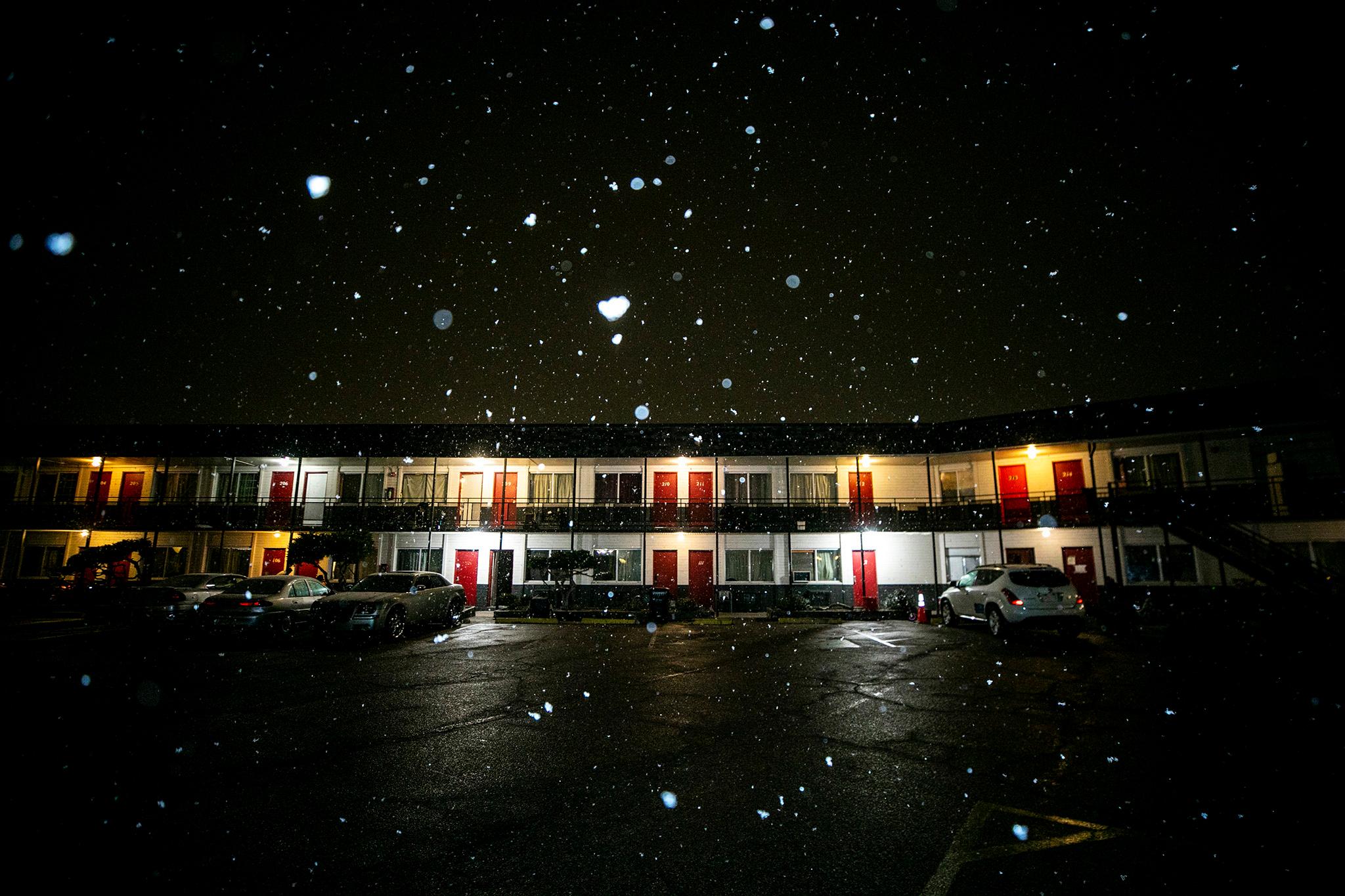Updated March 8: As part of a pending property sale, temporary residents of the Western Inn Motel began moving out in February. The inn's owner, Yong Cha Prince, faced thousands of dollars in city fines and was awaiting trial over the violations that led to them.
Our original story follows below.
Yong Cha Prince had given up on her life in Denver.
Her husband of four decades had died. So had her 33-year-old son, after years living with cancer. The motel they'd run together was falling apart, she was painfully lonely and she felt like it was time to leave for good.
The 73-year-old was preparing to shutter the Western Motor Inn, just off Vasquez Boulevard's intersection with I-70, in early October. She'd go to South Korea, where she grew up and where she planned to spend her days as a missionary.
But on the eve of the closure, a woman appeared in the cold with a half dozen Venezuelan boys with nowhere else to go. Prince invited them inside, free of charge. But there were so many more men, women and children who, like them and thousands of other migrants who arrived in Denver this year, were struggling to stay warm. Just a few days after Prince opened her doors, her old motel filled completely.
The closure, for now, was off.
That night, two strangers created a safe space that grew into a home for about 300 people searching for better lives in this country, a place where an unusual kind of family has grown. It's given Prince people to mother, to dote on and to watch after. For her guests, it's provided stable, warm places to sleep as they figure out where they may go next.
But this accidental family is unlikely to last here forever. Though Prince is willing to bear some costs and has won support from well-meaning locals, the motel is not in great shape and has earned thousands of dollars in fines from Denver's health department. As Prince works to keep the lights on and her new family fed, she knows, one day, this moment will come to an end.
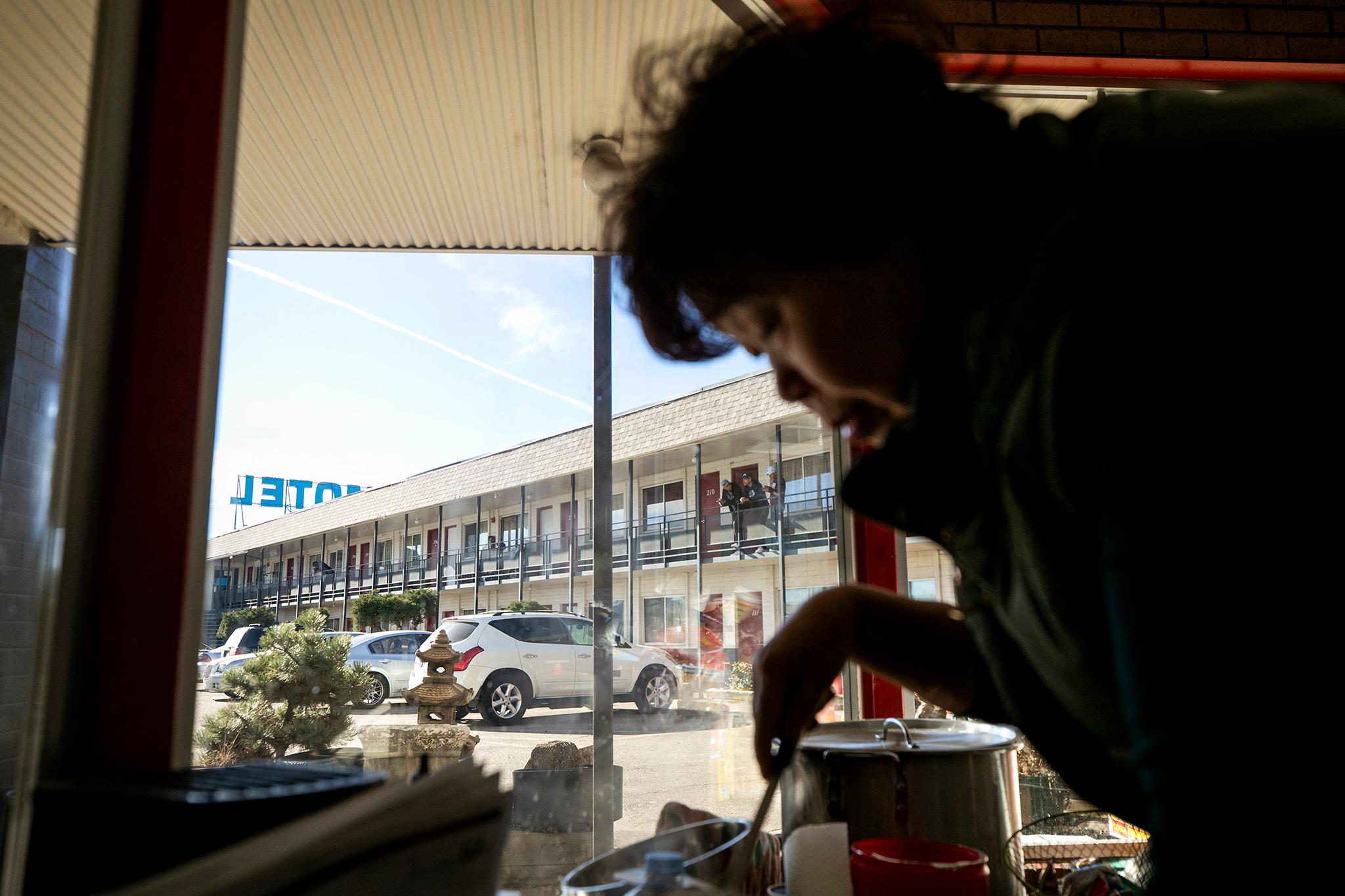
Christina Asuncion, a Denver native and private investigator, was buying a Red Bull at a nearby 7-Eleven when she ran into the group of boys from Venezuela, shivering in the autumn night.
Over the last year, Denver has struggled to accommodate the thousands of migrants, like those boys, who have arrived from border cities. Kids have slept in tents across town, as their families overflowed from city-run hotels and onto sidewalks. This was not on Asuncion's radar, but she knew she couldn't just walk away.
She also knew, when she knocked late that night on Prince's door, that the the Western Inn might have rooms and beds available.
"She was so good. She opened her door. I was so afraid that she was going to say no, because I had been sitting at 7-Eleven for five hours, calling people, asking people to help," Asuncion remembered, tearing up as she told the story.
After Prince agreed, Asuncion drove the boys down to 38th Avenue, near Denver Human Services' East Office, to get the stuff they'd left at their camp. What she saw there horrified her.
"There's all these kids and women and children outside, and they're freezing. Some of them are shivering so bad, I'd never seen anything like that before," she said. "I'm like, 'What's going on? Why are they leaving you out here?' And they're like, 'Because there's nowhere for us to go.'"
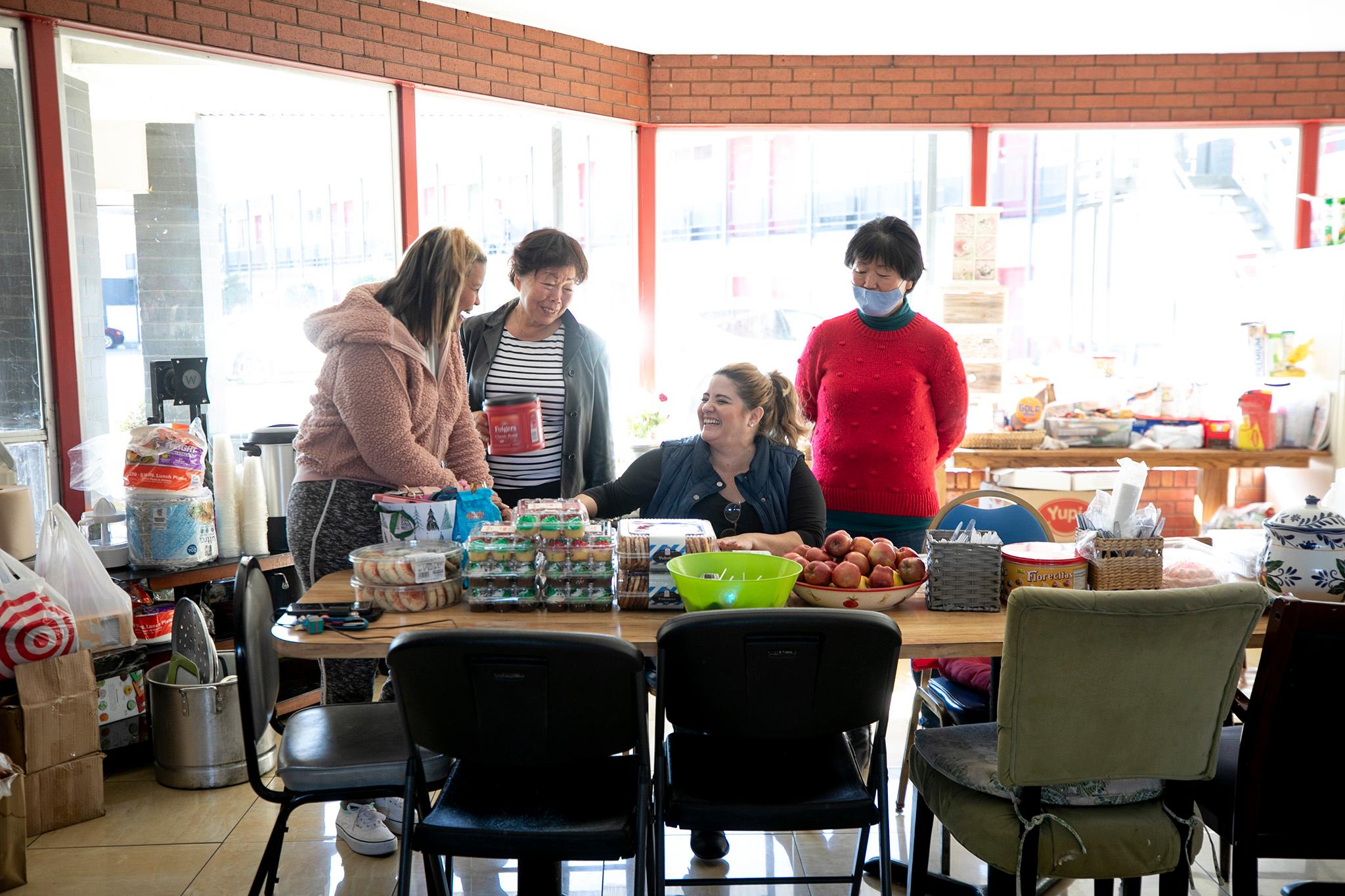
Asuncion felt compelled to act again. She went back to Prince's room at the motel.
"I was like, 'I'm so sorry, whatever's in my account, I'll give it to you. Can I get another room?' And then we just started bringing carloads of them over here, because I knew I couldn't leave them outside."
Prince opened her doors. Her motel filled with people overnight.
"270 in the first couple of days," she told us. "I wasn't ready for that. But I don't mind. I'm happy."
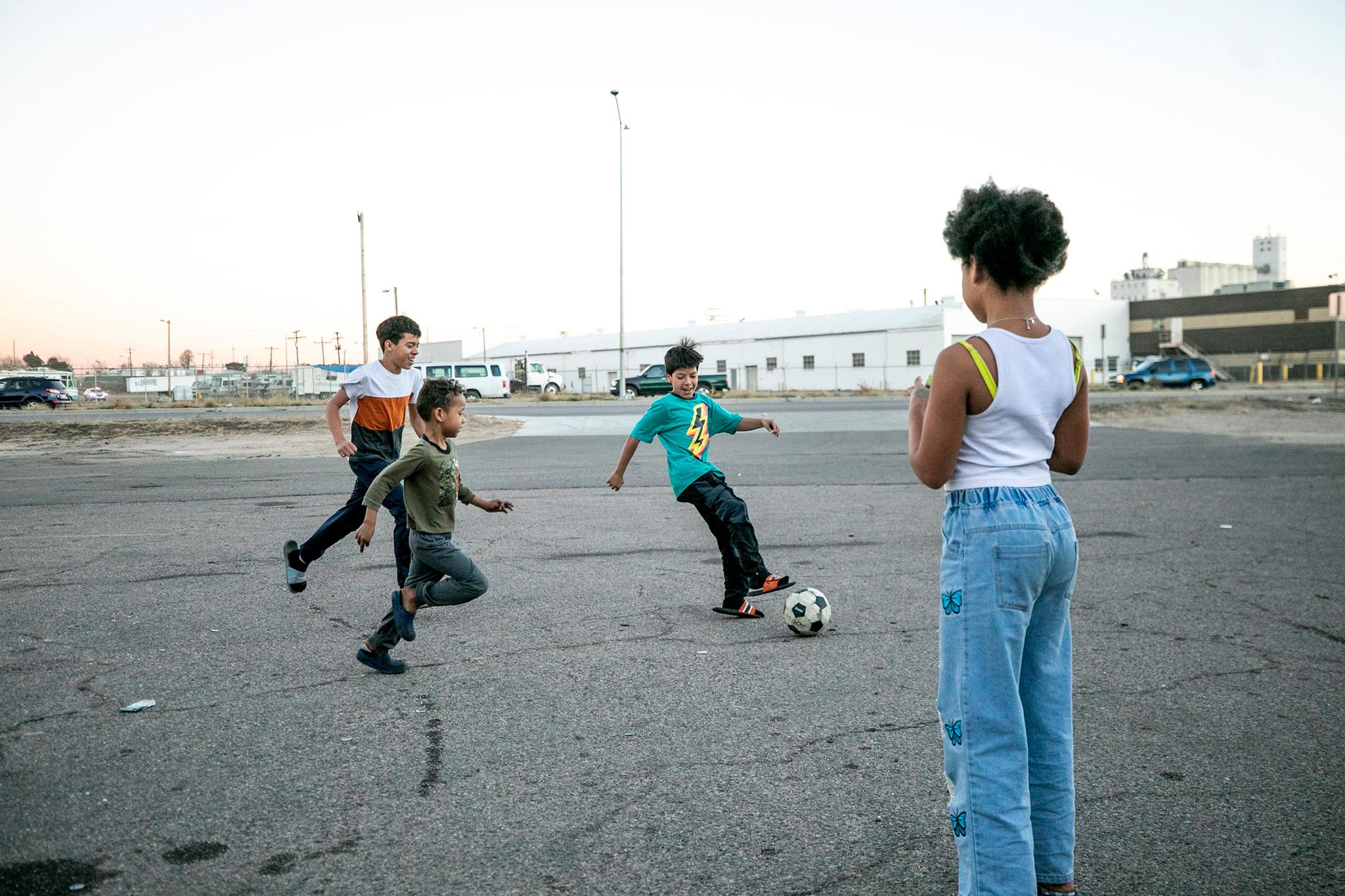
Still, Prince did not plan to shelter a hotel's worth of families for months. There just weren't other options.
Rayza Norvely Quinones Ramirez and her husband Marvin Torrealba didn't plan to come to Denver. They'd crossed the border into El Paso, joining so many others seeking work and asylum. At one point, Ramirez said, people arrived at the church where they were staying with bus tickets to New York, Chicago and Denver, imploring them to pick a city and leave. They chose Colorado because they knew they'd have to eventually travel back to Texas for their asylum hearings.
More than 33,000 people have been helped in Denver and/or stayed in city-sponsored shelters over the last year, but Ramirez and Torrealba were locked out. They'd have to make their way on their own, in a winter like they'd never experienced. They spent a few nights in a park near the Human Services building before they found the Western Motor Inn.
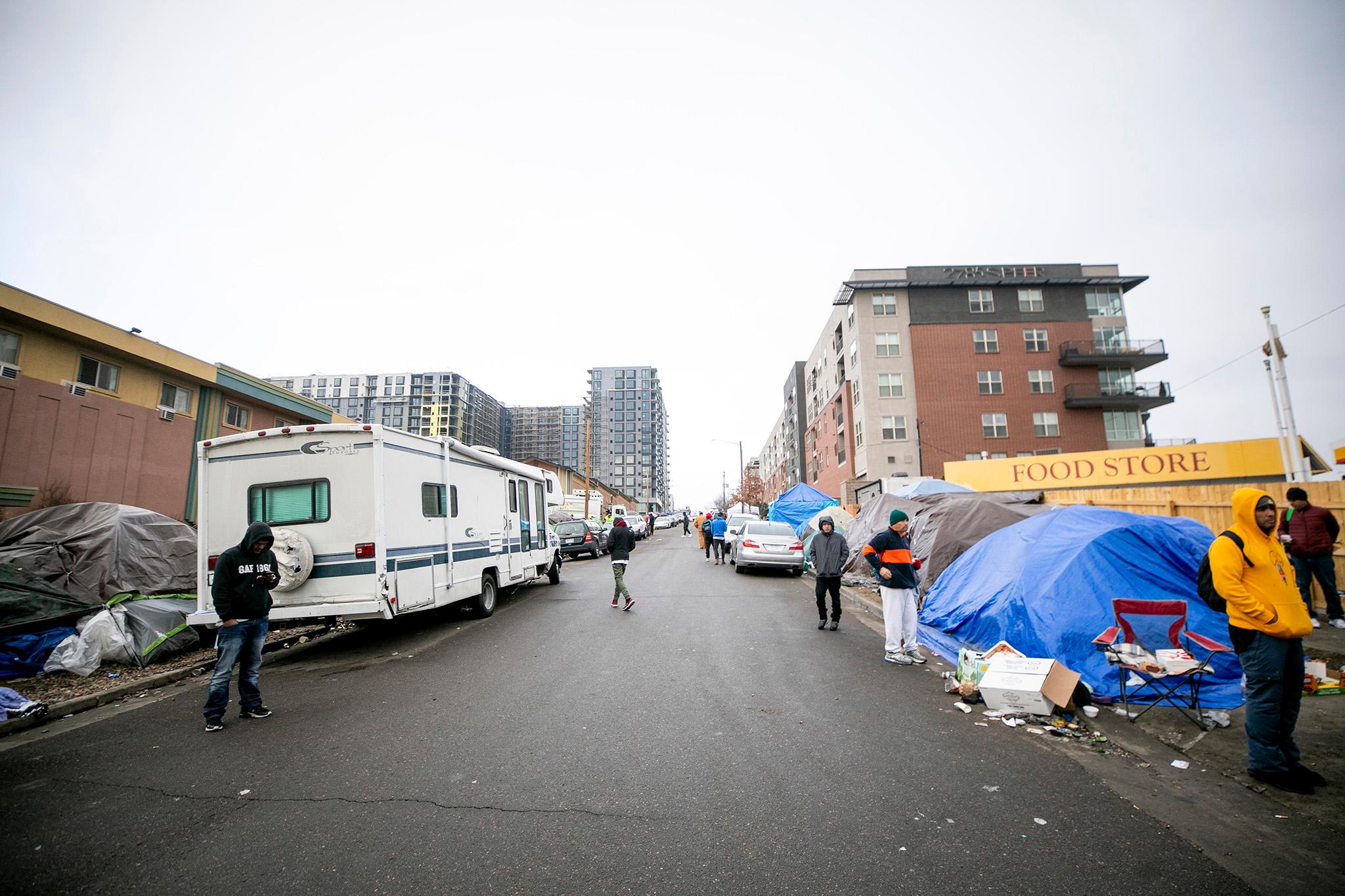
The couple paid for a room just before Asuncion connected with Prince. They could only afford one night inside, but they somehow felt they'd be OK. Ramirez said she felt warm for the first time in days staying at the Inn and safe for the first time since they embarked on the grueling, dangerous journey from Venezuela.
"I was sure that the next day we would find a solution and that God was not going to abandon us," Ramirez said.
Prince opened the floodgates as they prepared to leave, and allowed them to stay for free, too. But everyone thought this would be a short-term solution. Surely they could find help somewhere.
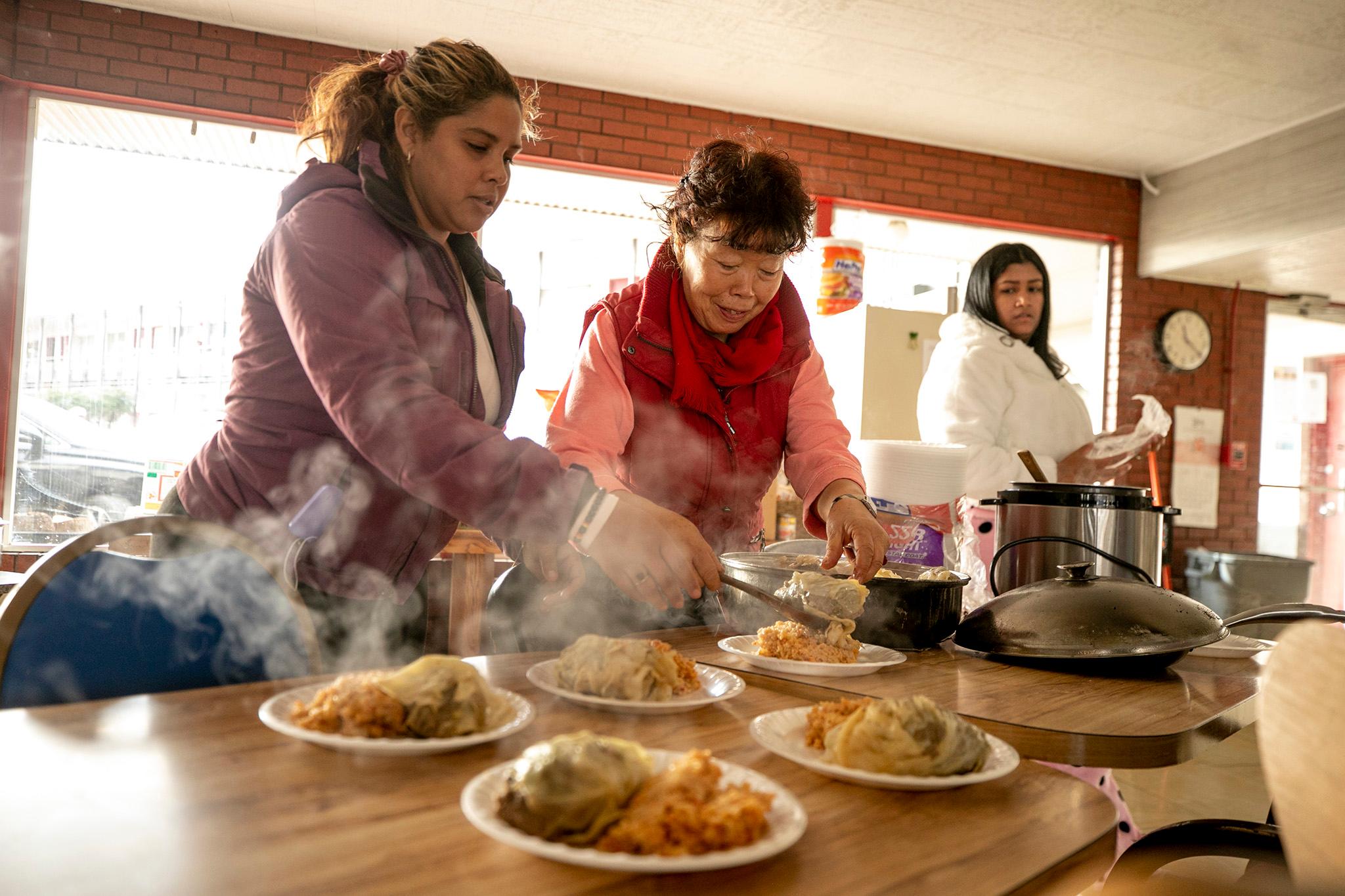
Asuncion remembered trying to follow a city-issued resource guide to take some of these new guests to a real shelter.
"From Denver Human Services we were supposed to go to Samaritan [House]. Then from Samaritan we went to Jesus Saves. Then Jesus Saves told us to go to St. Francis Center. Then St. Francis Center told us that we need to go over here to Denver Human Services," she said, laughing and rolling her eyes. "What struck me was, OK I have a car and gas and I've already spent a half tank of gas. But these people don't even have the clothes to be outside."
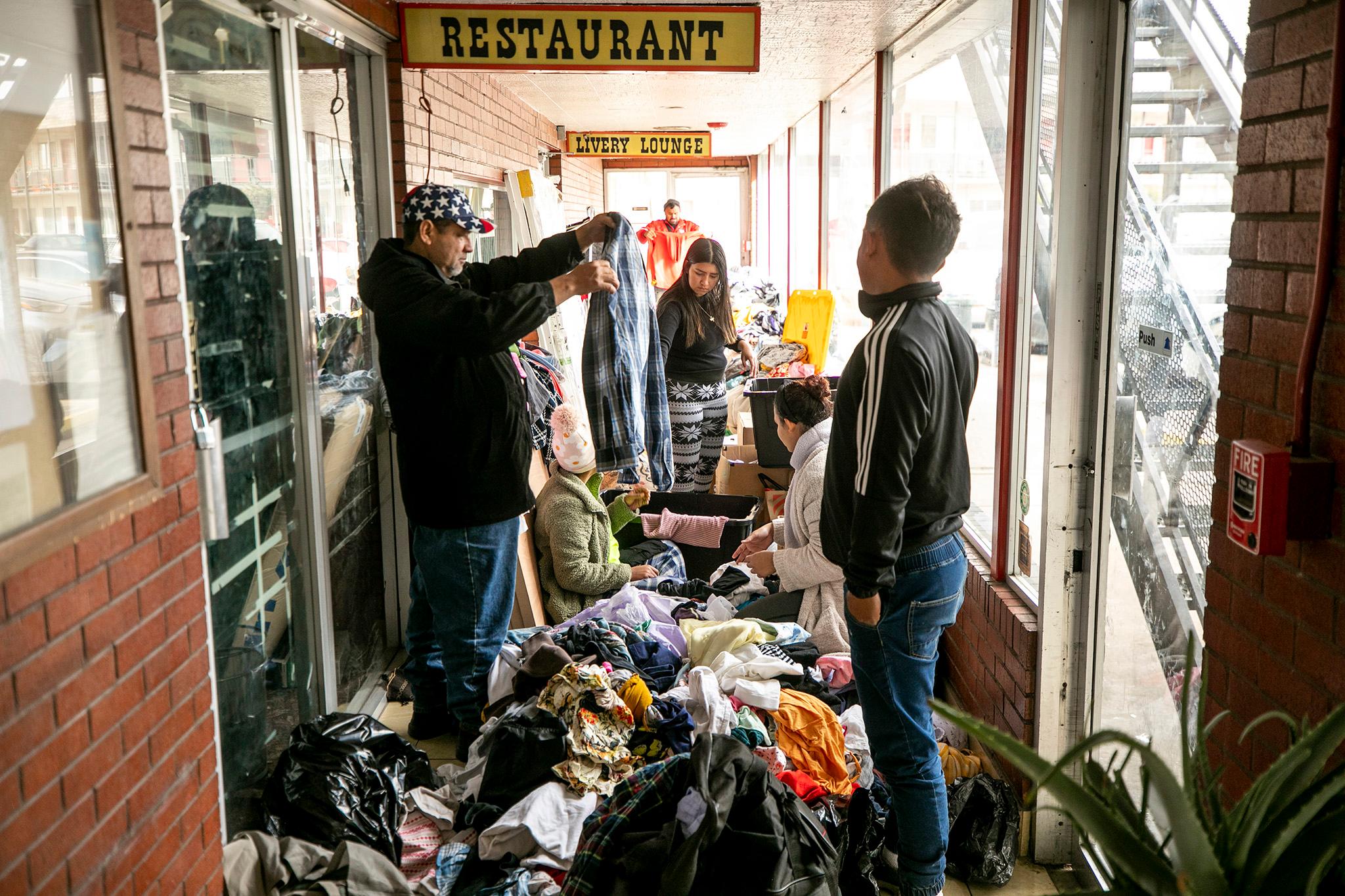
Evan Dreyer, Mayor Mike Johnston's deputy chief of staff, said they were probably turned away because the city's usual sheltering system has been full for months.
Johnston has said consistently that the city needs more federal help to address this crisis effectively, while he simultaneously attempts to move unhoused locals into supervised hotels and tiny home villages. Denver has spent millions on migrant services, but there are still plenty of gaps in this system.
Without other options, Prince's new guests stayed. She's worked around the clock to keep them fed and warm, and she's found purpose in that labor.
Prince was born to North Korean refugees as her country's civil war flagged to a stalemate and grew up poor. In 1981, she followed her husband-to-be across the Pacific Ocean to Colorado, where the couple scraped to build a life. She had $80 in her pocket when she arrived.
"My husband did two jobs, I did two jobs, from sunup to sundown, 12 hours a day," she remembered. "Saturdays, we slept all day long, then Sunday we had to go to church."
They found their own footholds and stability, earning enough to buy a sandwich shop in the Denver Tech Center, then traded that in for a motel in Aurora. Becoming entrepreneurs let them take control of their lives and spend more time with their growing family - now mother, father, son and daughter. They moved into the Western Inn in 2007.
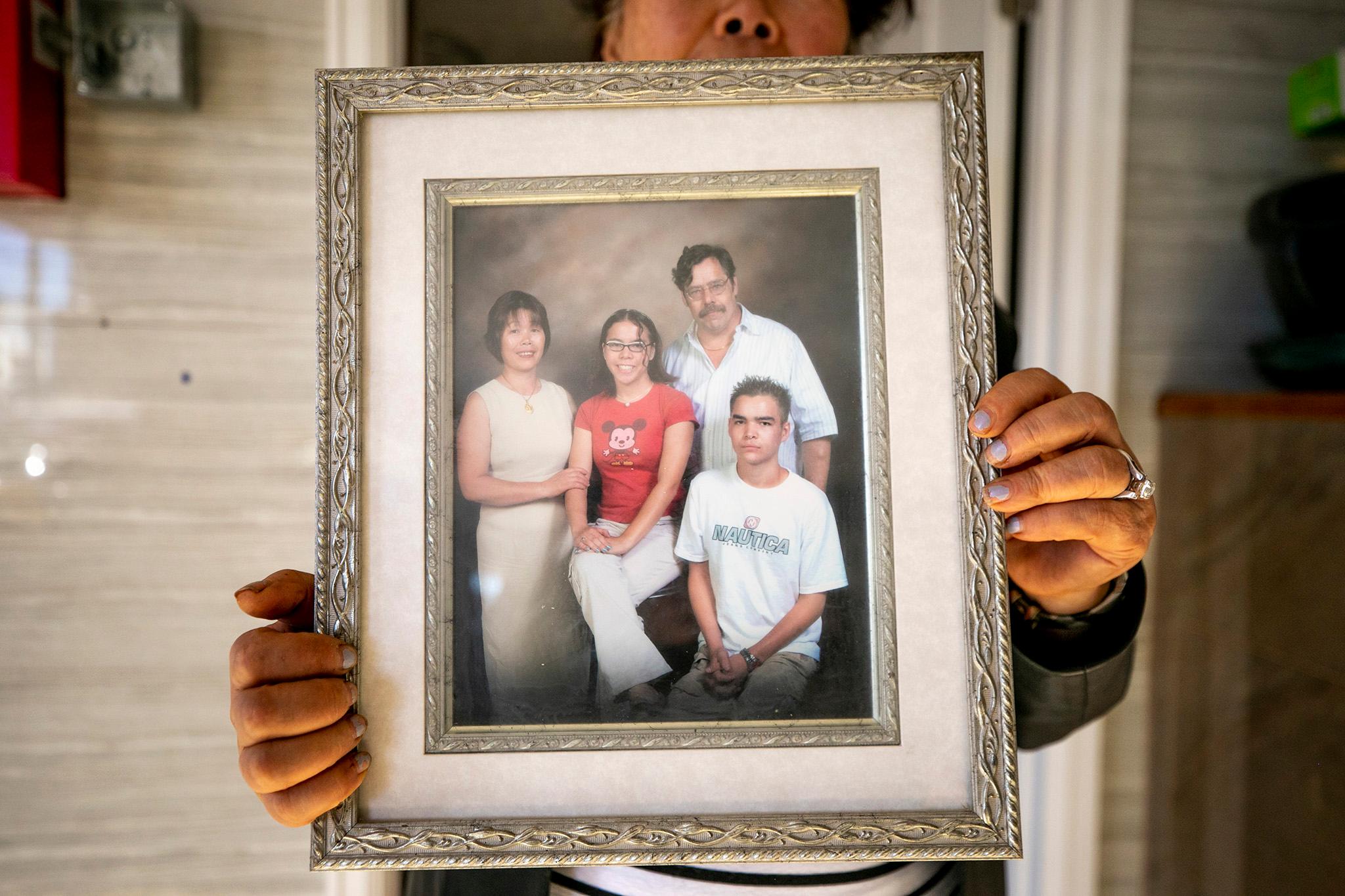
For decades, Prince woke up early and went to bed late, preparing breakfast, lunch and dinner for her family as she traded off shifts behind the front desk. Some of her friends thought she did too much, she said, and "looked down" on her for playing the good wife.
But Prince loved caring for her family. When her son died in May of 2022, she found herself running the motel alone. It became a desolate place without someone to look after.
"I miss my child," she said, emotion swelling in her voice. "I miss when I would cook for him and take care night and day. Almost two years I was lonely. So that's why I do this."
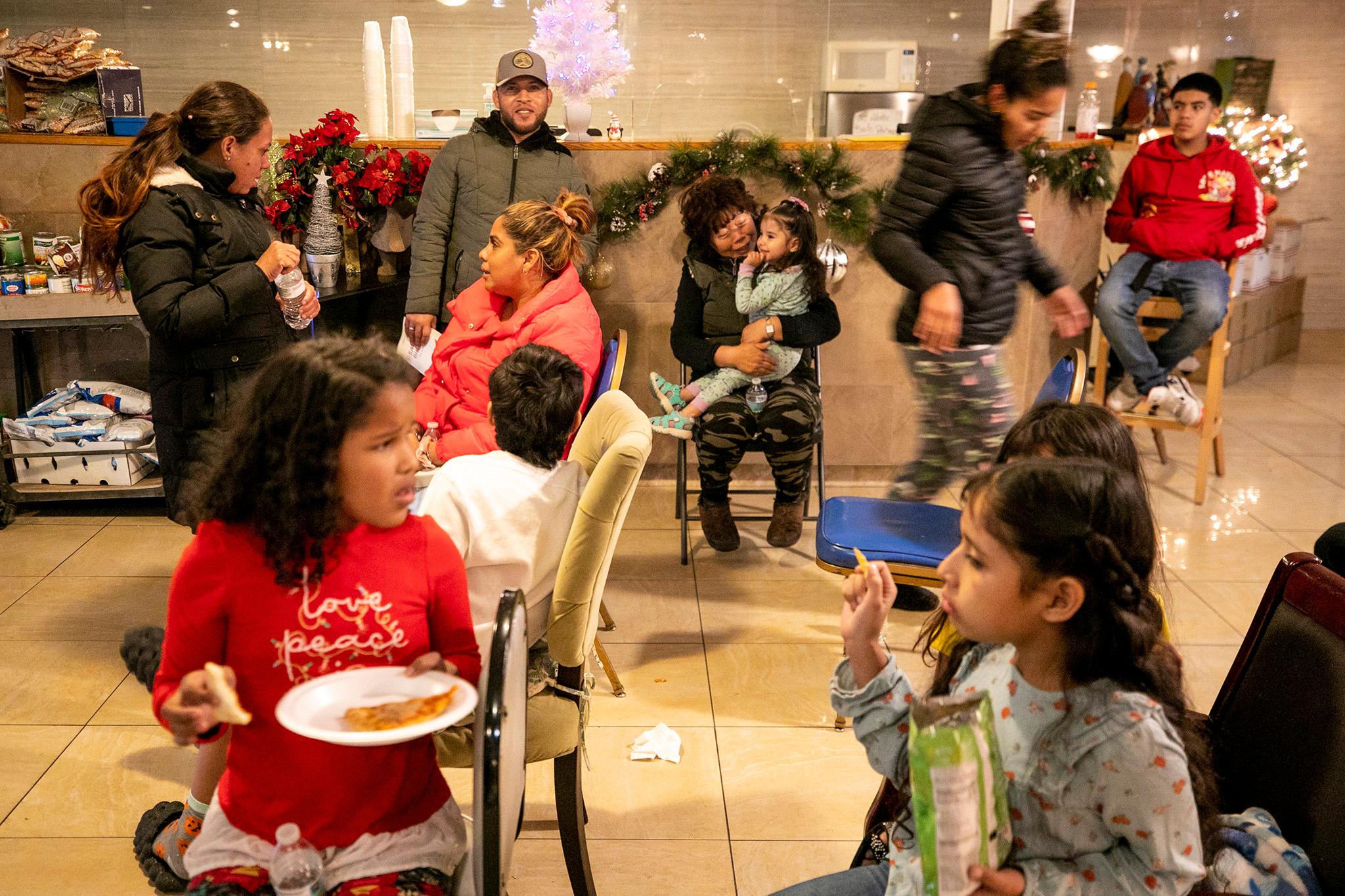
Prince has found immense meaning in caring for her new guests. Like she's done for years, she now wakes up before dawn and makes breakfast for people who are grateful for her cooking. She fixes lunch and dinner, too, filling a row of tables in her lobby with meals as people filter on and off the property, as they look for work and go to school.
This is "mama's work," she said, and it's reignited her life with meaning. In doing so, she's endeared herself to the guests around her.
"Mrs. Prince is the one who formed this family," Ramirez said in Spanish. "We all call her mom."
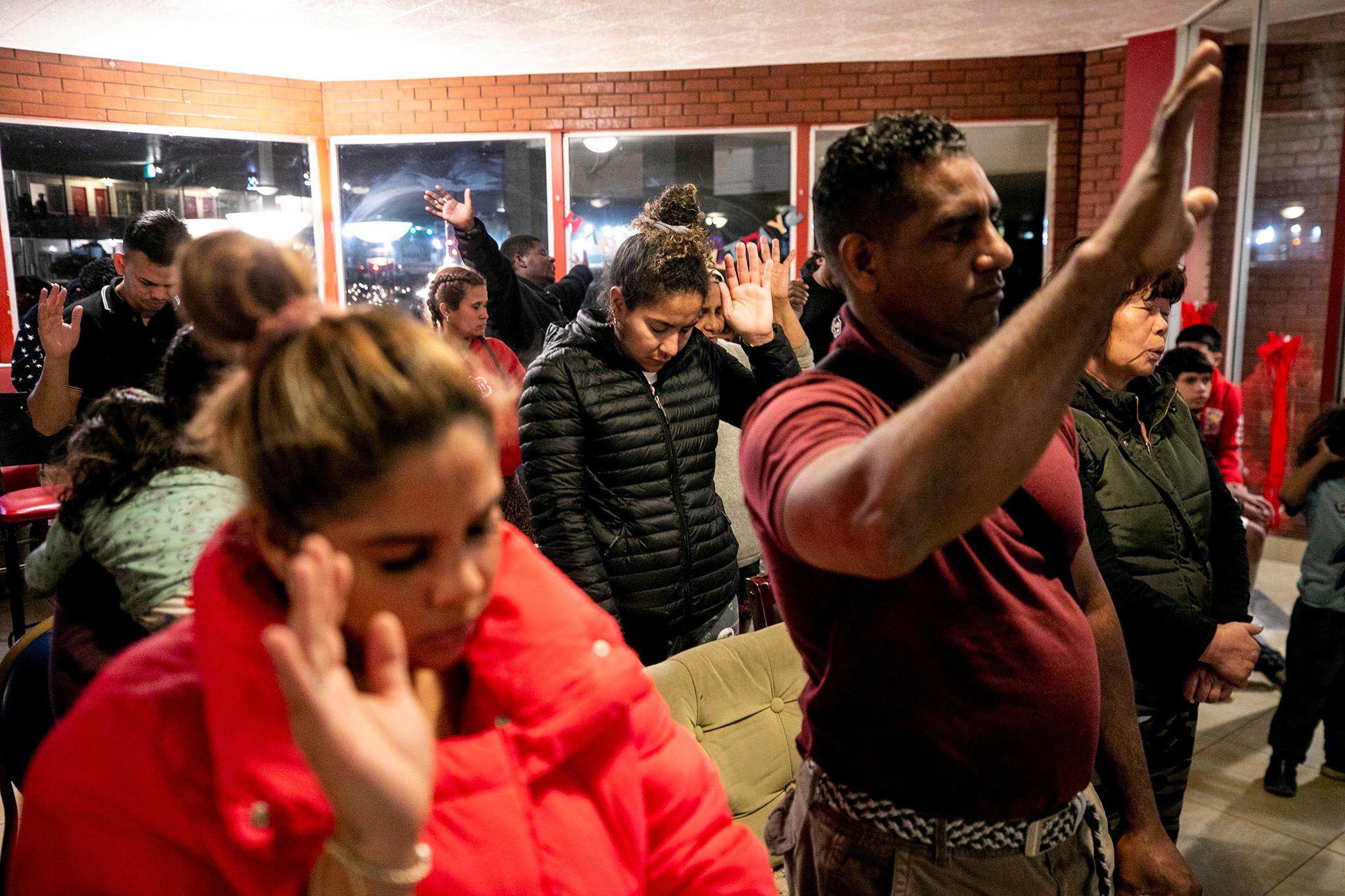
Ramirez and Torrealba have both become Prince's trusted assistants at the inn, despite a persistent language barrier. On Dec. 13, they helped organize a surprise for Prince, a way of thanking her for her hospitality.
At 5 a.m., the couple and about 20 other guests knocked on her door, before she had time to start cooking breakfast, to sing for her birthday. They filled the lobby with fruit and balloons to celebrate her.
"Today's really the best birthday I ever had," she said that evening, getting emotional again. "They did a good job."
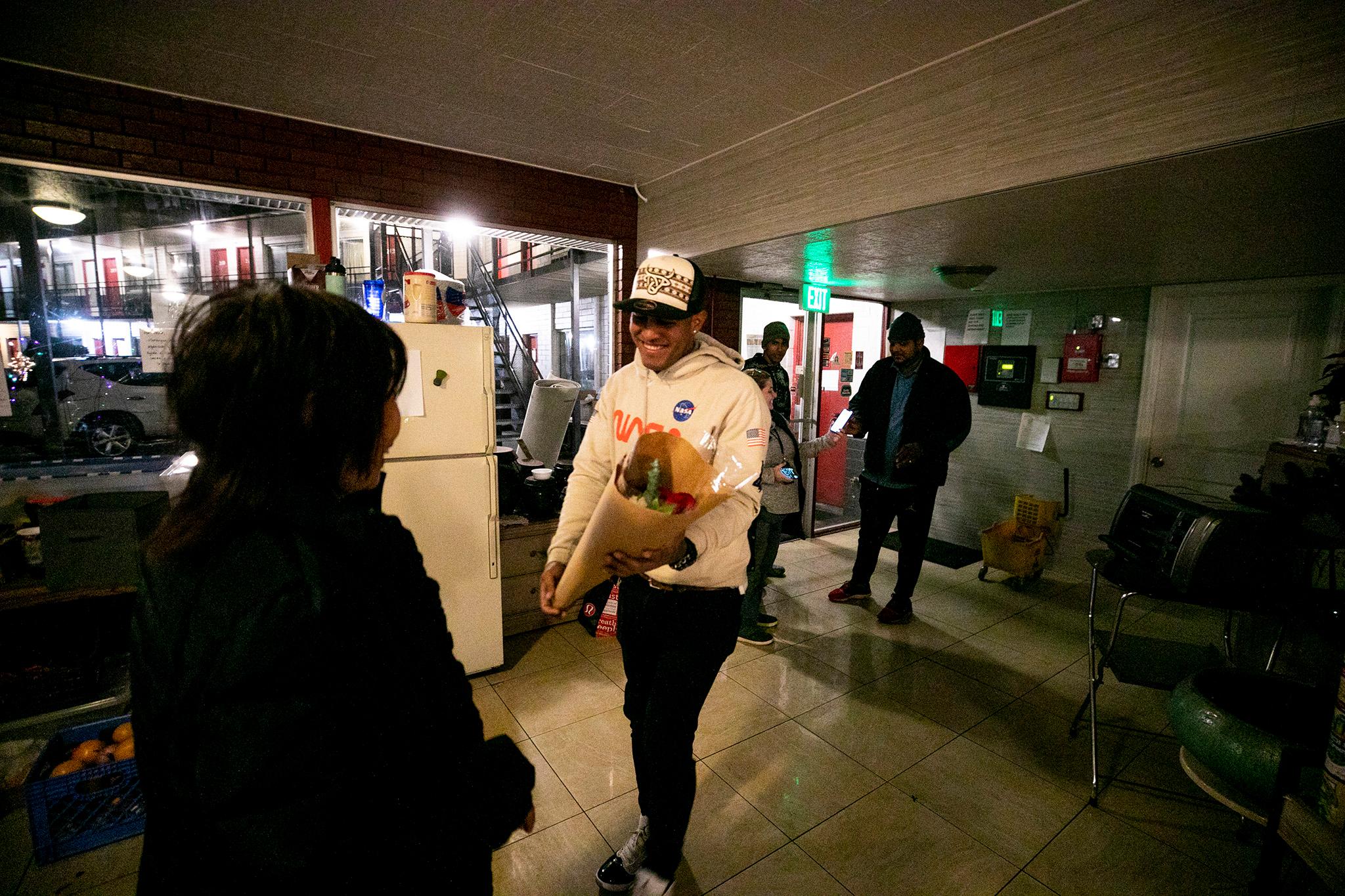
Neighbors have shown up in droves to support her effort, but Prince has dealt with plenty of trouble, too.
Prince and Asuncion started their new friendship without much help, figuring out day by day what this improvised sheltering effort might look like. But it didn't take long for their effort to attract attention.
By November, they'd tapped into sprawling grassroots networks of Denverites, mostly mothers organizing on Facebook, who've been working every day to supply diapers, blankets, food and jobs to migrant families sleeping in sidewalk encampments. Members of the Denver Moms for Social Justice Community Facebook group latched onto Prince's story, and became regular faces at the inn as they filled her space with food and supplies.
"We bought $800 worth of food two days ago, and we've been doing that every couple of days," Amy Patrice Golden, the group's founder, told us.
But they wanted to give families more than just means to survive. On the first day of December, they arrived with Christmas decorations, and brought in children living in nearby rooms to adorn a tree in the lobby's corner. On Thursday, they returned with multiple carloads full of gifts.
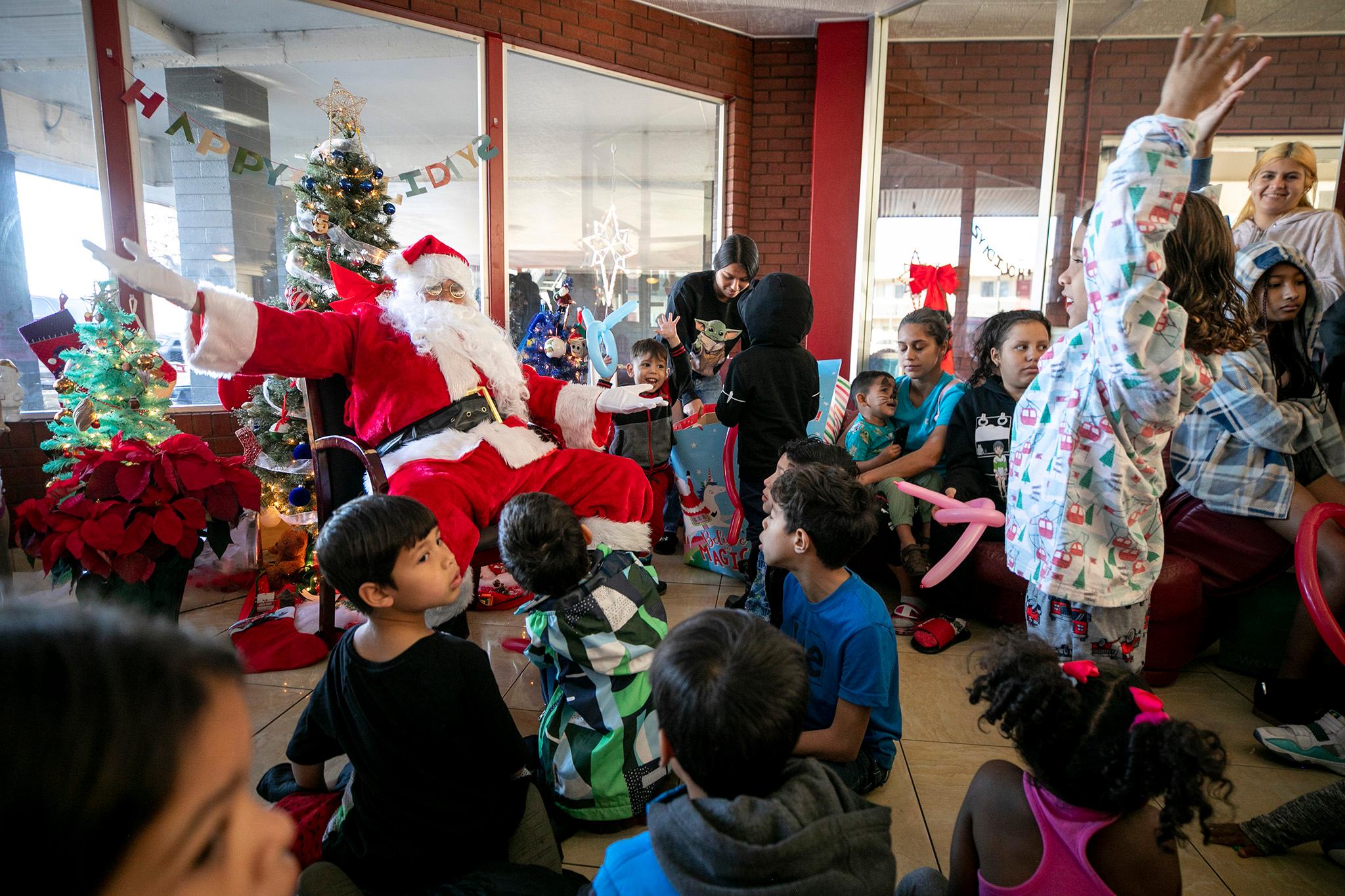
"It's an act of love, the community coming to support people who have walked from Venezuela," Dana Miller, a member of the group, told us. "Bringing them food and clothing and all sorts of things, including Christmas, brings a little joy to people who've been through a pretty traumatic journey. So we're honored to be here to help brighten their holiday season."
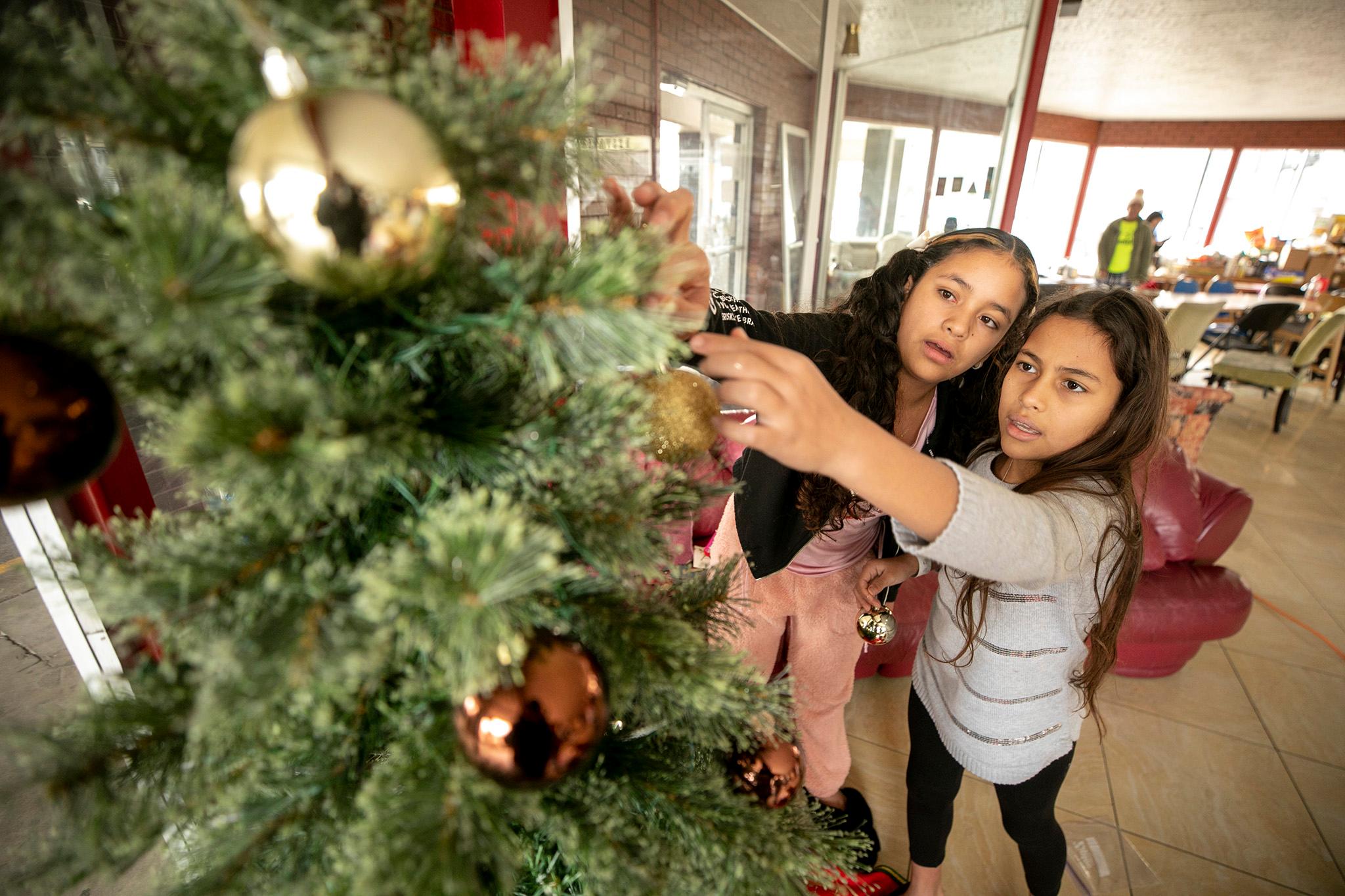
All the while, Prince has contended with less welcome visitors on her property. For months, inspectors with Denver's Department of Public Health and Environment have left notices of housing code violations on her door.
"DDPHE has issued $40,000 in fines to the property as well as General Violation Summons' to appear in court," Emily Williams, a DDPHE spokesperson, told us. "The outstanding issues include heavily damaged windows that could cause injury or harm; damaged, unsecured doors with damaged or missing knobs and locks; inoperable sink fixtures with no running water; and a toilet plumbing fixture in an occupied room missing a lid and seat."
Williams added that the department tries to work with property owners before they issue citations, and has explained violations to Prince and her attorney on "numerous occasions." She also said Prince has addressed some of the violations, and that she can appeal her fines.
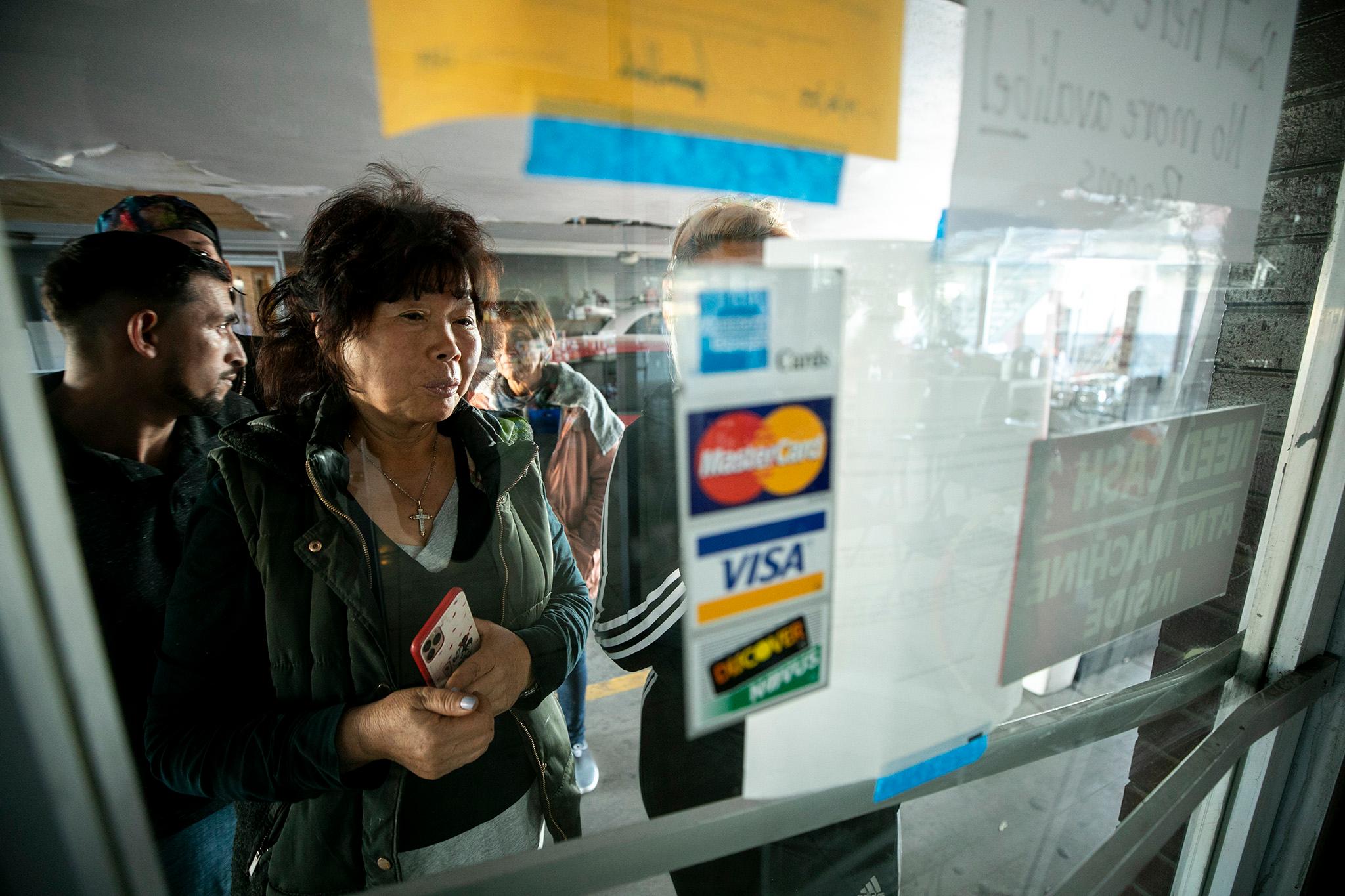
Prince contends she can't afford to fix everything and cover her debts, least of all because she's also been spending her own money to buy supplies for her guests. The city should be paying her, she told us, for keeping so many people from sleeping outside on public land.
And though the financial strain looming over her may eventually force her to close, as she intended to do months ago, there's also a possibility that a long-courted developer might finally buy the property. One way or another, this moment at her family's old home and business will come to an end.
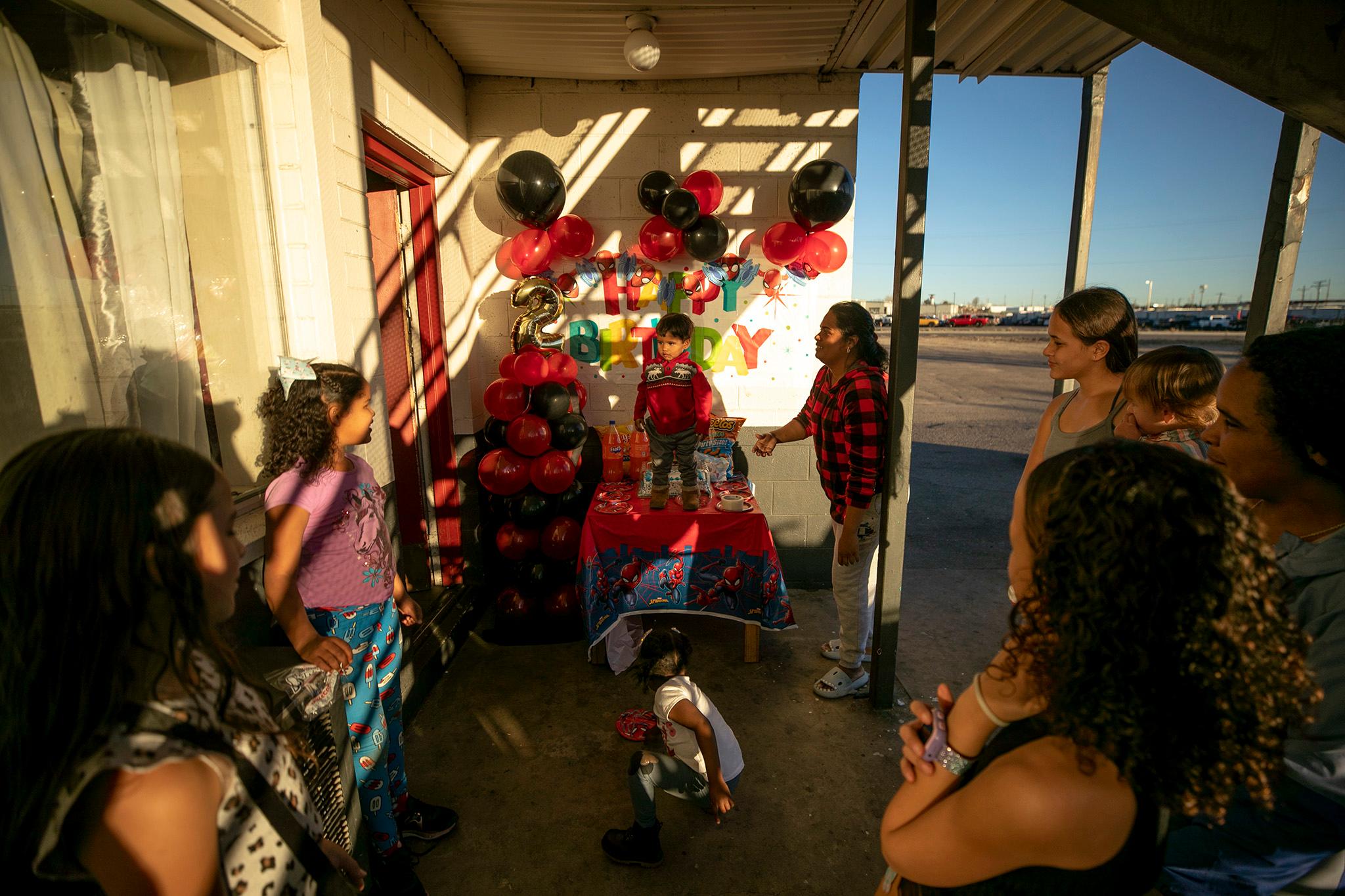
Marvin Torrealba, Prince's right-hand man, said he's been grateful for the opportunity to save some money and move on, but he'll be sad when this group inevitably scatters.
"That's why we have to take advantage of the time that we are here," he told us. "I already feel like this is my home, and all of us here, we treat each other like family."
Denverite Reporter Isaac Vargas contributed to this story.

